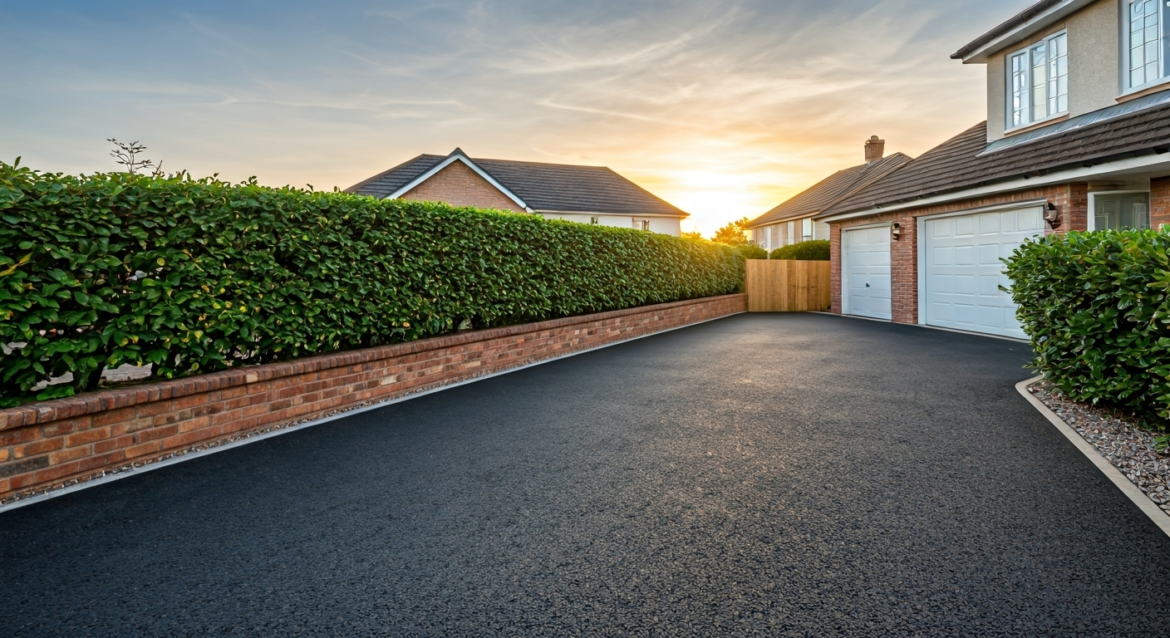
Is a Resin Driveway Right for Heavy Vehicles?
When you’re pouring your heart into your dream home or lovingly upgrading the space you already cherish, the last thing you want is the gut-wrenching sight of cracks creeping across your driveway under the weight of your RV or truck. It’s not just about aesthetics—it’s about trust. Can resin driveways truly stand their ground when the heavyweights roll in?
The Strength Behind the Beauty
Resin driveways captivate homeowners with their clean, modern appearance and hassle-free upkeep. But if you own a camper, van, or commercial vehicle, visual appeal isn’t enough—you need resilience. Imagine sinking thousands into a flawless driveway, only to have it sag beneath your vehicle. Heartbreaking, isn’t it? This is why understanding the strength and structural requirements of resin systems is essential. Because in the end, it’s not just a driveway—it’s the foundation for peace of mind.
Understanding the Types: Resin-Bound vs. Resin-Bonded
Here’s where things get technical—but crucial. Resin-bound driveways involve mixing stones with resin before laying, creating a durable, smooth, and naturally draining surface. Resin-bonded versions, however, simply scatter stones onto a resin-covered base, offering a similar look but far less strength. If you regularly park anything heavier than a sedan, don’t gamble—resin-bound is the reliable route.
Can Resin Really Handle Heavy Loads?
Let’s be real. A well-installed resin-bound driveway can bear up to 7.5 tonnes. That’s plenty for small trucks, delivery vans, and RVs. But the secret isn’t just in the resin—it’s in what lies beneath. A strong, well-prepared sub-base of MOT Type 1 or reinforced concrete makes all the difference. Without it, even the best resin surface won’t last.
A Driveway That Delivers More Than Just Looks
Resin driveways aren’t just strong—they’re stunning.
Versatility with Style: Whether you love modern minimalism or rustic charm, resin’s color and finish options let it blend seamlessly into your vision.
Sustainable and Smart: It’s porous, meaning rainwater passes through naturally—goodbye puddles, hello eco-friendliness.
Easy to Maintain: No more relentless weeding or scrubbing. A gentle wash now and then is all it takes to keep it looking pristine.
The Weight Question: What’s the Real Limit?
Let’s break it down: most quality resin-bound driveways handle up to 7.5 tonnes. That’s no small feat—it covers most home and light commercial needs. But strength isn’t only about numbers. It’s about thoughtful installation. Get the foundation wrong, and you could face costly regrets.
How Resin Distributes the Load
Here’s the science: heavy vehicles exert pressure differently depending on tire size, load distribution, and how long they’re parked. Resin-bound systems excel at evenly spreading this pressure—especially when combined with a robust sub-base. Wide tires help too, minimizing pressure points that cause cracks.
Tested by Real Life, Not Just Theories
Resin isn’t unproven—it’s trusted in high-traffic spaces like hospitals, airports, and schools. These places demand durability, and resin delivers. When properly laid over a reinforced base, premium resin systems can handle more than most residential setups will ever demand.
Myth: Resin Is Not Fragile
Let’s crush the rumors. No, resin doesn’t crumble under heavy weight—at least not when installed by professionals. Those nightmare stories you’ve heard? They often come from poor installs or cheaper resin-bonded versions. When resin-bound systems fail, it’s usually due to shortcuts in groundwork, not the material itself. Done right, resin is strong, stable, and more than capable.
Caring for Resin Under Pressure
Good news: maintenance is light. Still, a little care goes a long way, especially with regular heavy use. Shift parking spots occasionally, don’t let oil or fuel pool on the surface, and give it a light pressure wash every few months. Got a crack? Patch it early—it’s easy and inexpensive.
What’s the Cost—And Is It Worth It?
Yes, resin costs more up front. But the long-term value? Incredible. With fewer repairs, higher curb appeal, and years of dependable performance, resin driveways often end up cheaper than concrete or asphalt when you consider the full picture. Think of it as paying once for peace of mind—rather than paying again and again for repairs.
What Experts Says
Civil engineers and seasoned installers agree: resin isn’t the weak link—installation is. With a properly prepared sub-base and precise laying, resin becomes a champion surface. Precision and preparation are everything.
Your Final Decision: Is a Resin Driveway Right for Heavy Vehicles?
Still undecided? Think beyond the surface. You want durability, elegance, sustainability, and simplicity—right? Resin gives you all that, and with the right installation, it’ll carry the weight of your lifestyle without breaking a sweat. Invest in quality materials, experienced professionals, and a solid base, and resin could be the last driveway you ever need.
FAQs
- Can a resin driveway support an RV or truck?
Yes, provided it’s a resin-bound system installed over a compacted, reinforced sub-base with the correct thickness. - Will parking a heavy vehicle void the warranty?
Not always. Many installers cover standard heavy vehicle use, but confirm this before signing anything. - How long does a resin driveway last under constant heavy traffic?
With proper care and maintenance, expect 15–25 years of dependable service. - Can resin driveways be repaired easily if damaged?
Absolutely. Small cracks or damage can be patched seamlessly—no full replacement needed. - Is planning permission required for a heavy-duty resin driveway?
Usually not, unless you’re altering drainage or installing over a large area. It’s best to check with local authorities to be safe.
